Russia election: On a journey through real Russia, we reveal what ordinary people actually think of Putin, the election - and Theresa May
Special report: Amid an election where the result is in no doubt, and accusations of Russian meddling and assassination attempts echo around the world, Oliver Carroll asks the question – what is life really like for ordinary Russians under Vladimir Putin?
Your support helps us to tell the story
From reproductive rights to climate change to Big Tech, The Independent is on the ground when the story is developing. Whether it's investigating the financials of Elon Musk's pro-Trump PAC or producing our latest documentary, 'The A Word', which shines a light on the American women fighting for reproductive rights, we know how important it is to parse out the facts from the messaging.
At such a critical moment in US history, we need reporters on the ground. Your donation allows us to keep sending journalists to speak to both sides of the story.
The Independent is trusted by Americans across the entire political spectrum. And unlike many other quality news outlets, we choose not to lock Americans out of our reporting and analysis with paywalls. We believe quality journalism should be available to everyone, paid for by those who can afford it.
Your support makes all the difference.A little over two centuries ago, the publication of an anonymous and largely fictitious travelogue sent shockwaves through the Russian empire. “A Journey from St Petersburg to Moscow” detailed a stream of social injustices – from harsh laws to venereal disease and the poverty of serfdom.
Catherine the Great, who had just returned from inspecting her newly annexed Crimea, was not impressed. The author was identified as an aristocratic tax inspector called Alexander Radishchev, and he was exiled to Siberia in no time.
It was the first sanction of its kind taken against a writer, and it ended Catherine’s brief infatuation with the literary world.
Radishchev’s polemic would be banned for 115 years. High literature it certainly is not, but the explosive nature of its criticism has fixed it in Russian history and school syllabuses.
On the eve of Sunday’s presidential election, and as the fallout from the Salisbury poisoning threatened to push contemporary Russia into complete international isolation, The Independent retraced the famous route. Over two days, we travelled by car between Russia’s two capitals, which are now connected by a federal highway: the M-10.
Along the way, we discovered that not everything has moved on.
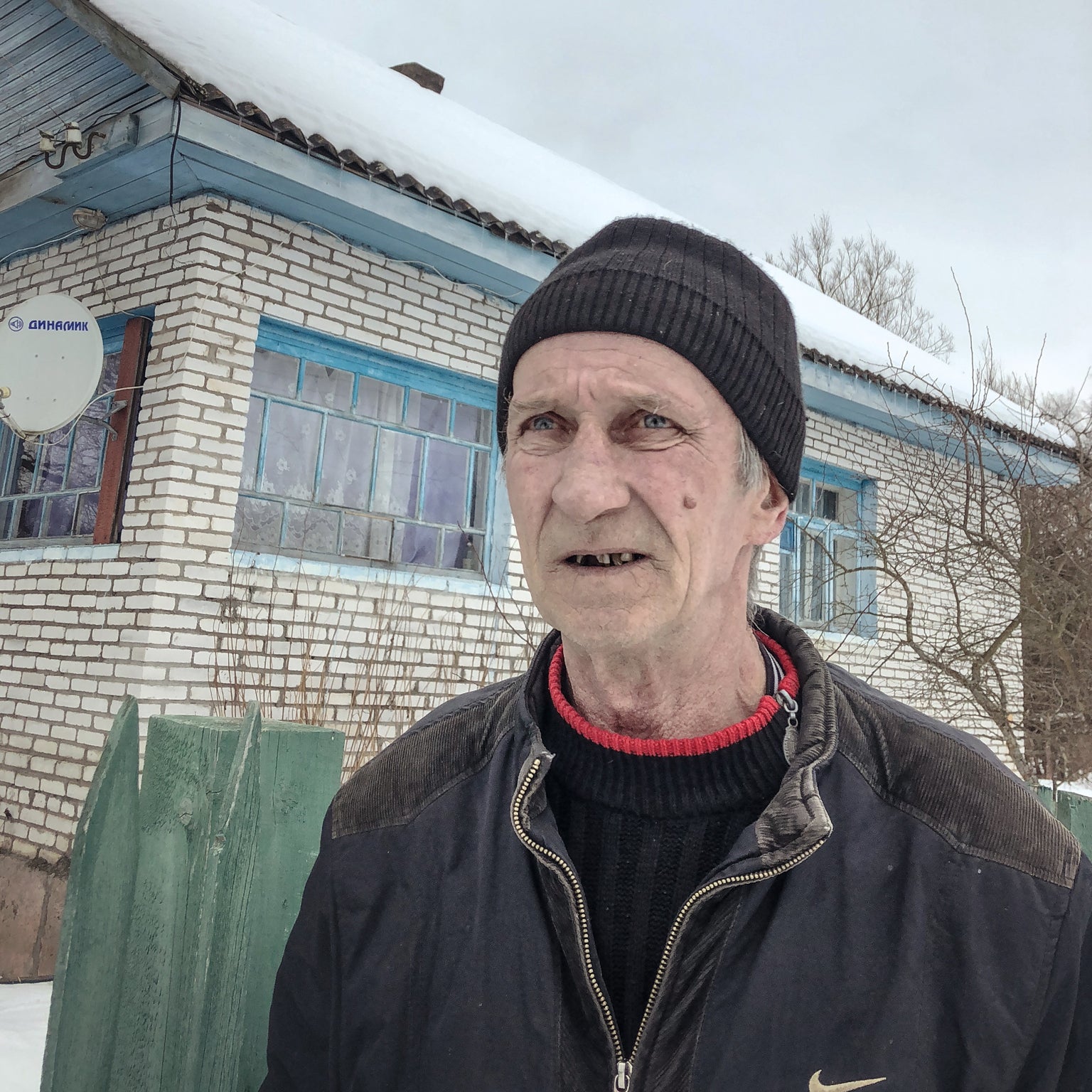
Within half an hour of setting off from St Petersburg’s central Radishchev Street, the grandness of the imperial capital gives way to more monotonous landscapes. We pass grey, Soviet apartment blocks, petrol stations, shopping centres, the power lines and rusting factories of Russian suburbia. For a while, the road follows the tracks of the Great October railway and its slow-moving cargos, which are every once in a while overtaken by glitzy new high-speed trains on their way to Moscow.
A few miles on from the city’s boundaries, the birch forests, wooden homes and aching loneliness of Russia’s heartlands begin.
In Chudovo, a small market town and one of the first “stops” in Radishchev’s journey, we pause to offer a lift to Sergei Mikhailov, 60. The weathered man of few words tells his life story. He used to work as a driver at the local collective farm, he says.
The farm is no more, but he’s since moved into the filtered water business. It’s one of the few growth industries in the region, boosted by the the local timber factory – the source of the foul, metallic smells that follow the river downstream.
“People are fussy these days,” says Sergei. “They want clear drinking water.”
Sergei Mikhailov is by no means at the bottom of the pile. His wage and pension bring him over 20,000 roubles a month – that’s enough to cover food and medicines. His daughter doesn’t earn much more working in a chicken factory in St Petersburg, and she has to commute 90 miles every three days. She’s lucky, says Sergei; there aren’t any jobs left locally.
He’ll be voting in the village on Sunday, he says. Who for? “Well, there has only ever been one man on the ballot paper. ” Besides, the television has been warning about another war in Ukraine a month after the elections.
“I’ve got no problem with the Ukrainians personally, but the Americans have 60,000 troops ready to attack,” he says.
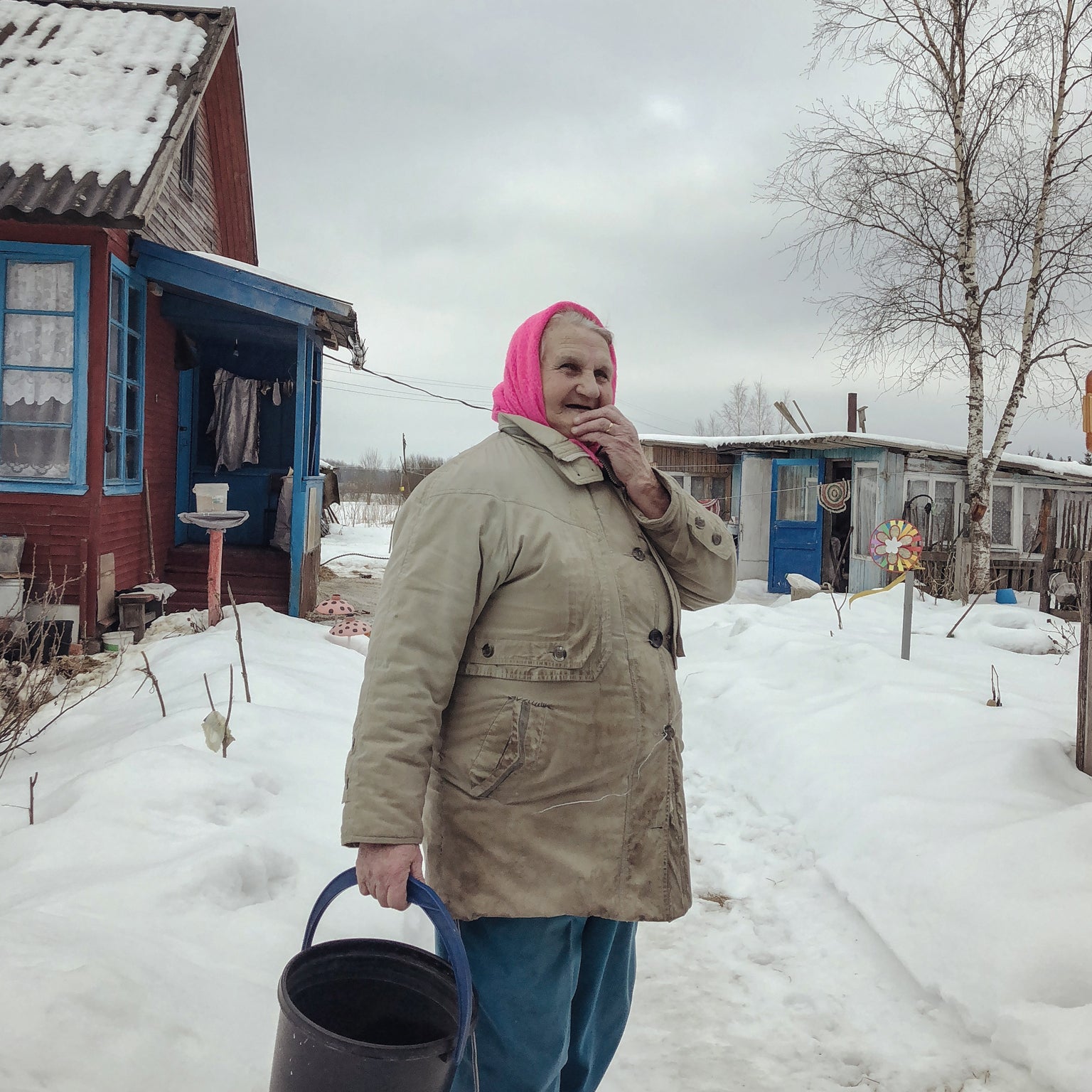
Once upon a time, there were many bustling settlements all alongside the highway. Today, the villages are disappearing. The decline has been decades in the making, and first began during a Soviet “efficiency” drive.
Kids leave to the local towns as soon as they can – generally to neighbouring Novgorod or St Petersburg. Those who don’t tend to fall into alcoholism and decay. The especially bored ones turn to arson. At least two dozen of the wooden homes on a five mile stretch out of Chudinovo have been reduced to cinders.
The village of Radishchevo in Leningrad Oblast, named after the exiled writer, is a case in point. Sergei says there used to be a dozen families living either side of the road – “Now all that’s left is a couple of old widows.” We drive up to one of the homes, and Sergei leads the introductions.
“Lyubov Pavlovna, it’s Sergei Mikhailovich, from the farm, you remember me?”
“Sergei Mikhailovich? My, you’ve changed! I didn’t recognise you!”
Lyubov Pavlovna, 80, toiled all of her working life as a milkmaid. The farm has gone, as have most of her neighbours. But she lives on with her three dogs, two goats and a paltry pension for company.
Her conditions are basic. Parts of her house are falling down. Going to the toilet requires a walk across the exposed, icy yard – no easy task for a woman of her age. The nearest shop is several miles away.
But life is “just great!” she says. “No shops? Well, what of it, we’re not doing badly here. It’s what you’re used to, isn’t it? You come out of the house, you have your little rest, you glance at the TV, you chop some wood, and you go back to wash the goats.”
Lyubov Pavlovna says she’s never had time to read Radishchev’s journey. She has no time for politics, she says – between bringing up her five children and milking the cows.
But this year, she has caught a glimpse of the “presidential” debates on television. She hasn’t been at all enthused by any of the candidates, least of all the liberal opposition candidate Kseniya Sobchak, who has been “slinging mud over Russia”.
Instead, she’ll be voting for the man who has fastidiously kept his distance from live TV. “Vladimir Putin. Who else?” she says. “Maybe some people are having it tough, but I’m doing OK!”
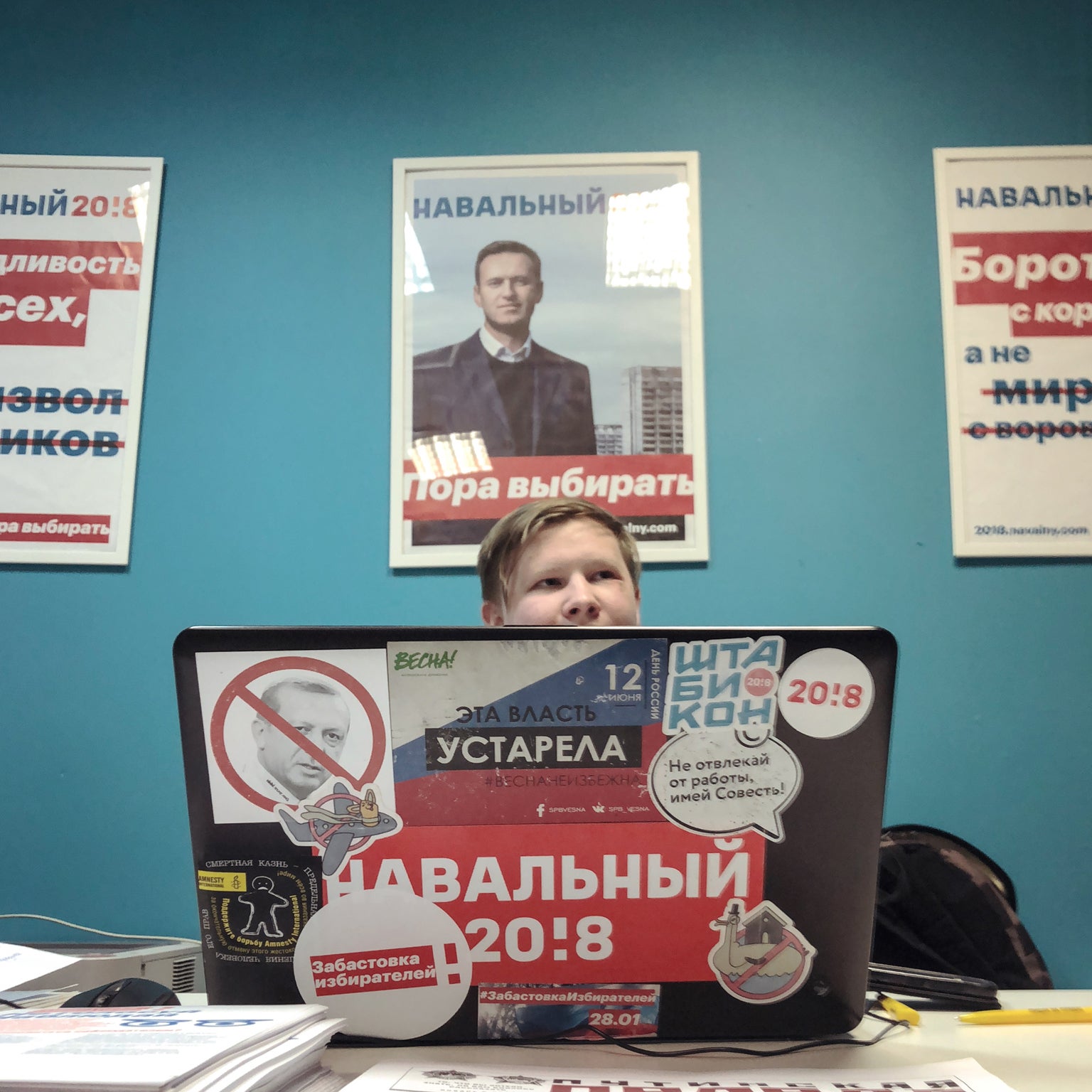
The ancient city of Veliky Novgorod plays a central role in Radishchev’s journey, held up as an example of the country that might have been. Over the 12th to the 15th centuries, Novgorod was famously governed by a representative oligarchy, with public meetings, elections, political parties and all kinds of checks and balances. The republic’s existence ended abruptly in 1478, when the city was overrun by the tough men from Muscovy.
Contemporary Novgorod is some way from those hailed democratic roots. When we arrive, there is no sign of political campaigning at all, despite presidential elections being a few days away. The only visible message is the handful of posters that line the road into the city’s historic Kremlin citadel. All advertise a new “future” under Vladimir Putin, the fourth-term president.
Tucked away from the other side of the Kremlin, however, is the alien spaceship of Alexei Navalny’s local headquarters. The Putin critic might have been controversially barred from these elections, but his band of merry men – kids, to be more exact – continue to campaign on his behalf. The activists have redecorated the small hut in cool turquoise and Ikea white, with posters of their hero dotted around.
The local campaign team is actually from St Petersburg. Konstantin Pokhilchuk, 21, and Yarovslav Putrov, 19, were parachuted in to the sleepy provincial town when it became clear there just weren’t the local cadres. Since then, their lives have been subject to the best of Novgorod hospitality: constant surveillance, intimidation and the occasional arrest. But their enthusiasm hasn’t waned, they insist.
As we talk, the pair conduct interviews with two would-be election observers – a 15-year-old and 16-year-old. Shy and nervous, they say they were radicalised by Navalny’s videos showing the alleged corruption of the country’s leaders. All of their friends had seen the videos too. Not all of them are on his side, one admits. Some still prefer Pavel Grudinin, the moustachioed Communist Party candidate.
“It’s pretty dead,” says Mr Pokhilchuk. “Nobody understands just how important Novgorod was for the cause of Russian democracy. But we’ve had some success with our stickers.”
!['Thatcher was a bitch, but I respected her. This one [Theresa May] is just a bitch'](https://static.independent.co.uk/s3fs-public/thumbnails/image/2018/03/16/17/russia-election-eve-15.jpg)
By now, night is drawing in, and the weather is now among Russia’s most unpleasant: freezing rain accompanied by a bone-chilling wind. As news of the British ultimatum to Russia over the Salisbury poisoning breaks, we draw into a roadside cafe, in the hope of finding a drop of something to warm the soul.
“We’ve got enough problems here without selling vodka,” says the woman behind the counter.
“Problems?” I ask.
“From the authorities. Who else is going to fine me? Turnover is bad as it is. No one has counted their pennies as much as my customers are doing now. The cafe is for sale, if you’re interested.”
Liudmila Alekseeva has run her roadside cafe for 25 years. It’s nothing fancy – tea, coffee, chocolate, crisps and a basic menu for the truck drivers. But the egg mayonnaise and over-sugared tea are comforting enough.
For 30 years before she turned to trade, Alekseeva was an educator. She taught physics first in the city of Pskov, on the border with Europe, before being redeployed to teach in the village school. Alekseeva was always a disciplinarian, she says. And in the President she sees a kindred spirit.
“Only Putin, I don’t see another way” she says. “If it was up to me, he’d be my President for life. He’s pulled us up, pulled us out of the 1990s. Our tummies are full now, and we have clothes on our backs.”
She has problems – yes, many problems – but they were nothing to do with the President or his eighteen years of power. The cause of all her headaches were the bureaucrats – “those who see deception, treachery, robbery and … murder as nothing more than drinking a glass of water,” as Radishchev wrote two centuries ago.
Alekseeva says the council is trying to push her out of business to take control of the land. She tells dark tales of the suspicious arson attacks in which she was nearly burned alive. Now, she says, the council is threatening to take away her rental rights, and she is battling them in court.
Perhaps when people read her story in the British press, I suggest, things might improve?
She pauses. “So you’re an English correspondent? I’ve been gobbing away like this to a foreigner?! No, no, no! I don’t sell my country down river! Let alone to the English! The bastards!”
A television flickers in the background. One of the leading stars of Russian propaganda, Vladimir Soloviev, is angrily dissecting the consequences of the British ultimatum.
“I watch the television all the time, so I know what I’m talking about,” says Alekseeva. “Your Theresa May is just a swine. Now Thatcher, yes, I could respect her. She was a bitch, but she was fair. This one is just a bitch.”
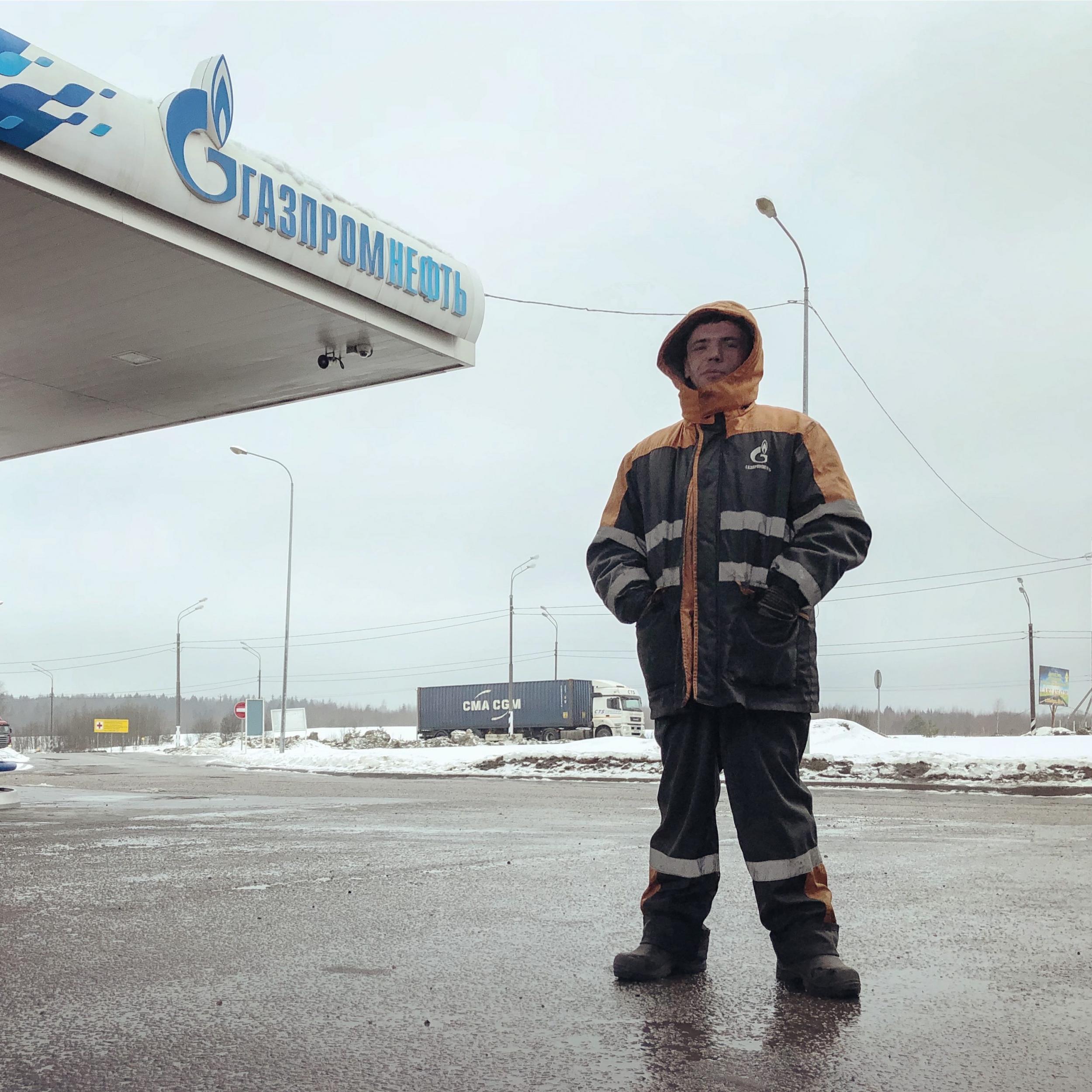
Half way on our journey, we reach Valdai, the administrative centre and commuter point for a huge national park by the same name.
Stalin kept a country home here, and the current President, it seems, is no less fond of the area. In 2004, he picked it as the location of an elite discussion club with handpicked foreign experts, designed to boost Russia’s image abroad. The Valdai Forum has since become an annual event, and, consistent with general information policy, more controlled and hand-picked with each passing year.
Putin has also built a luxurious residence here, on the edge of the park’s pristine lake, and locals say they see his helicopter flying in from time to time.
A whole infrastructure has been built around the President’s needs, says Nikolai Ivanov, 33, an attendant at the Gazprom service station on the way out of the town.
Those who manage to fall into the inner circle can expect excellent salaries: “Putin has security guards there on 80,000 roubles, and all for doing nothing. You live a plush life with that kind of cash.”
Ivanov earns less than half that, while working punishing 12-hour shifts. But, for a while, he too was part of the privileged presidential set-up, labouring as a builder on Putin’s estate.
He recalls the countless security checks both before and during the works, and the lavishness of the world inside: “There’s an entire universe behind the fences: a tennis club, helipads, chapels, you name it. The facade of the residence is decked out in marble, and the castle, my, words escape me. It’s being added to all the time.”
The awe-inspiring riches will not stop him voting for Putin, he says. His heart says he should be voting for the nationalist, Vladimir Zhirinovsky. There are too many foreigners in the country, and “Zhirik” would put a stop to that immediately. But his head says Putin.
“I don’t think Putin will start wars that no one needs. And Zhirik, well, it’s 50/50,” he says.
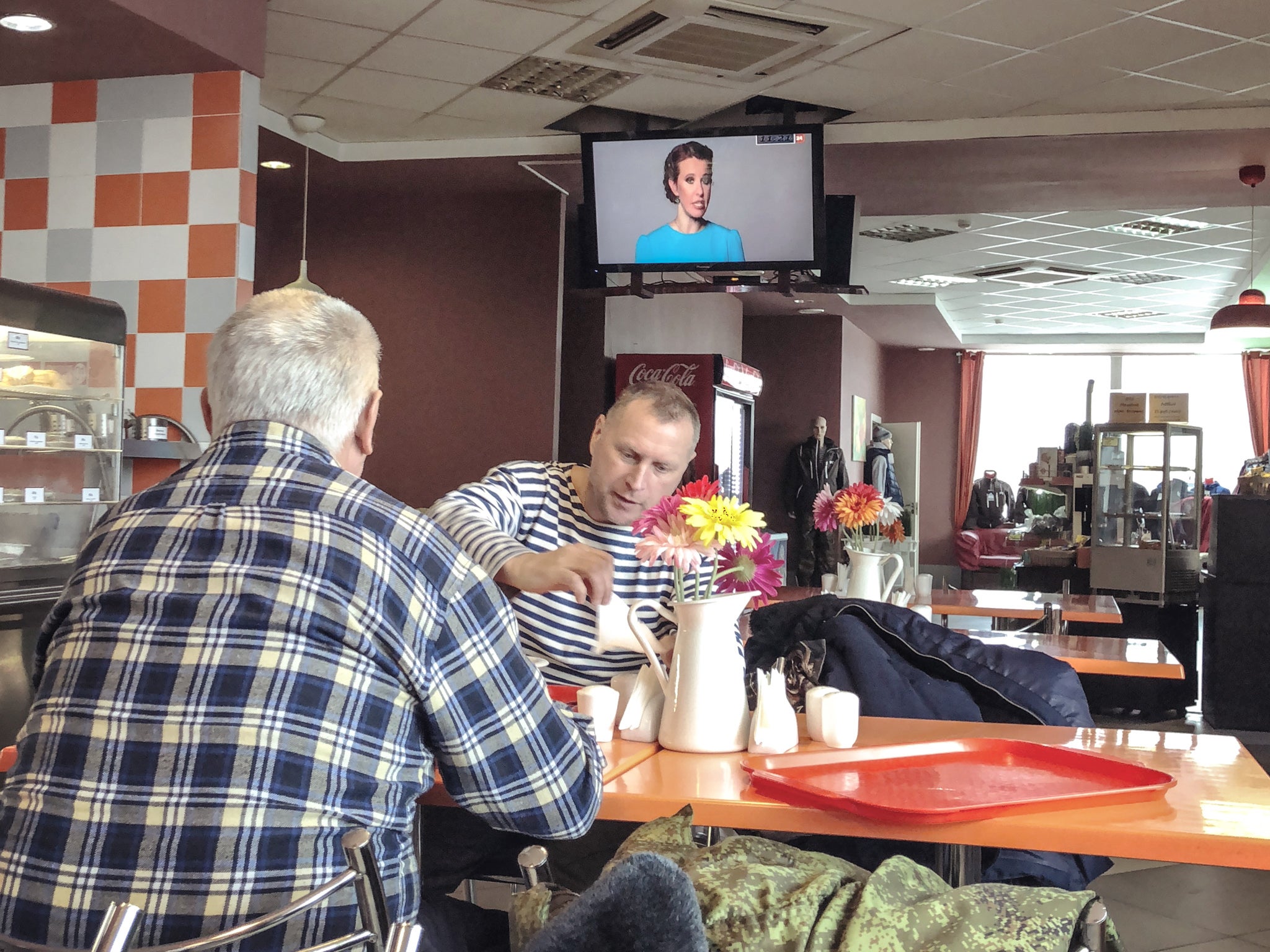
Putin’s definitive election victory in 2012, and the merciless crackdown that followed, put paid to Russia’s nascent protest movement. With increased stakes on dissent, there were few serious challenges to the President’s rule during his third term. One of them, undoubtedly, came at the hands of the country’s trucker community two years ago.
Protesting against the imposition of a new road tax called Platon, hundreds of drivers began a slow march on Moscow. Authorities were so alarmed at the prospect of the protest reaching the capital, they launched a heavy-handed security operation to stop the truckers. It worked. Since the high point of 2016, the protest died down. But judging by the mood of drivers in this lay-by cafe, much of the anger remains.
“There are no laws that say we had to pay that tax, and truckers already pay enough on petrol tax,” says Vladimir Kuznetsov, as he tucks into a plate of eggs and sausages. “People are coming round to it because they are afraid of fines and there is no one to complain to.”
“Roads and fools, that’s always been Russia’s problem,” says his breakfast companion, Sergei. “The bureaucrats are keeping the money for themselves, which is why you see roads being built on marshland without the proper foundations. There are pits all along this highway – it’s like driving on a trampoline sometimes. Crashes almost every day.”
None of the drivers say they have any inclination or intention to vote.
“Elections? Give me a break!” says Sergei. “The pensioners will go to vote because they have nothing else to do. But the ordinary people are pissed off. They won’t take it much longer.”
By Russian standards, the drivers aren’t doing badly, earning an above-average 50,000 roubles (£620) a month. But they are angry at the government, which, they say is making them poorer. Months spent on the road – from Murmansk to Siberia – have removed any hope that change is around the corner.
“There’s no money left in the country, and it isn’t funny,” says Vladimir. “It’s an extreme feeling when you only have 100 roubles in your pocket.”
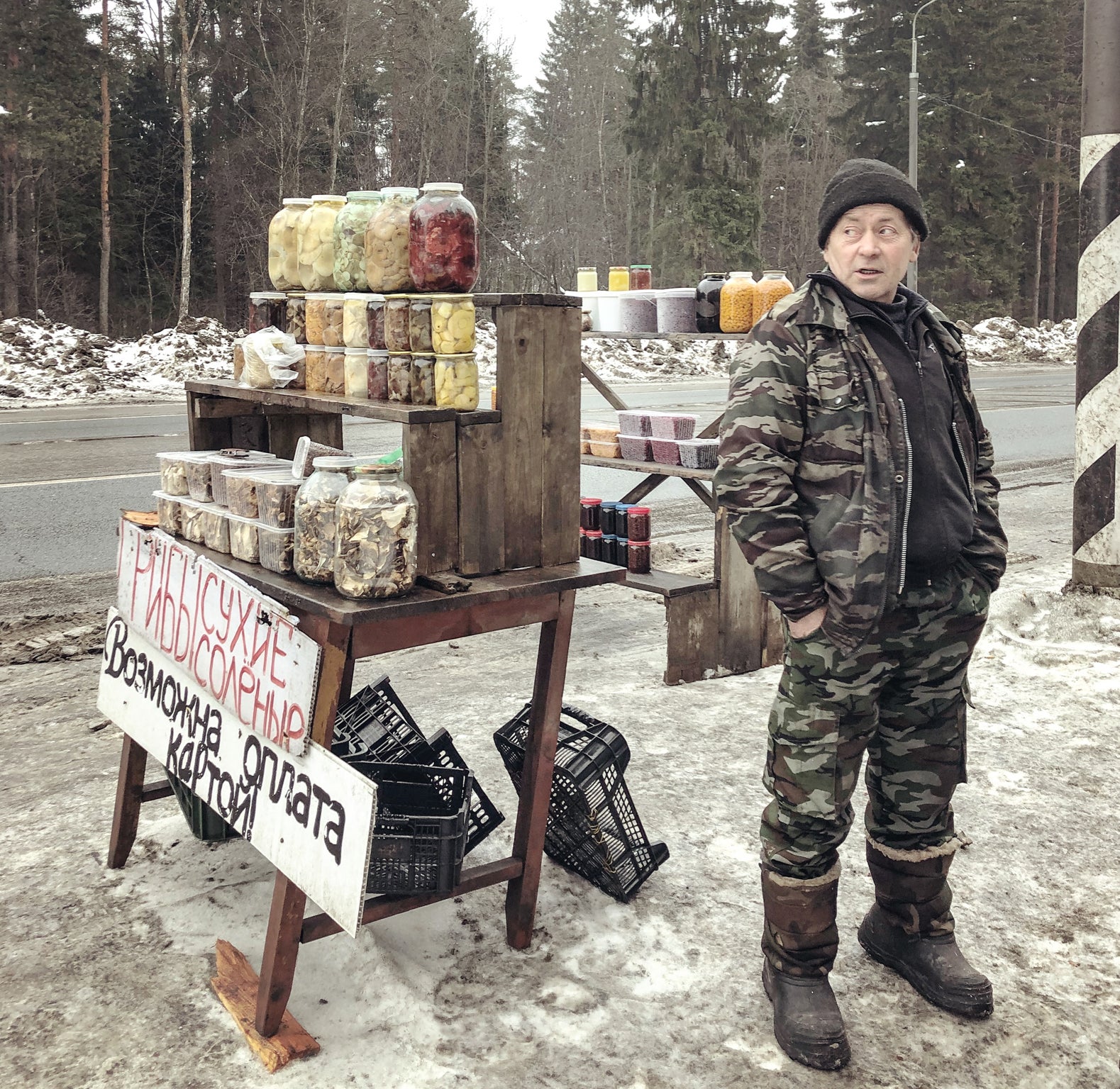
“The Russian being is very patient and will tolerate things to the extreme,” wrote Radishchev. “But when he reaches the end of his tether, there is nothing that will stop him committing acts of extreme cruelty.”
Every day, along the sides of the M-10 highway, ordinary Russians perform tasks that would push Western tolerance to breaking point. Small-scale traders work on through freezing conditions, inches from danger, on pitiful and decreasing wages, but only because they have no choice. A reliable axiom seems to be at work here: the worse their condition, the less people complained, and the less they viewed politics as an answer.
In a day’s work of selling coffee and potato pies, Sveta Pavlovna earns 400 rubles (£5). She’s been standing alongside her small table and samovar nearly every day for the best part of eight years now. The business is hard, and was more profitable a few years ago, but she’s got used to it, and she’ll cope even if it gets worse. The one thing she won’t be doing is voting.
“Nothing will change come Sunday,” she says. “Putin’s already stolen all that he can, and maybe he’ll stop now. But even if he goes, things will just get worse.”
A few miles down the road, Marina is selling anti-freeze at 100 roubles a bottle. Her wage is generous in comparison – 800 roubles a day.
“It’s about surviving in these parts,” she says. “People do what they have always done – get by. Nothing has changed in centuries, only the asphalt. The trees are where they have always been, and the marshes, villages, too. Everything is in ruins.”
“Tell me what exactly there is to vote for?” she says.
And another few miles on is Mikhail, a medalled Afghan veteran now in the business of selling wild mushrooms. Mushrooms are his life passion – “there aren’t any hallucinogenic ones for you lad, sorry” – and his eyes sparkle while talking about the preparation process. “You need to see how they are cooked. First you soak them, then, like smoked meat, you salt them in layers, adding seasonings, spices.”
Mikhail’s home is a village 50 miles into the forest, but he has been forced to commute to this spot for ten years. He’s here for days at a time, come rain, hail or snow.
“I’m not here out of a good life. There’s no work in the village. Nothing. So we club together and do what we can,” he says. “They say everything’s A-OK on the telly, but we know things aren’t like that.”
“You’ll take the white mushrooms?” We do, and they are quite delicious.
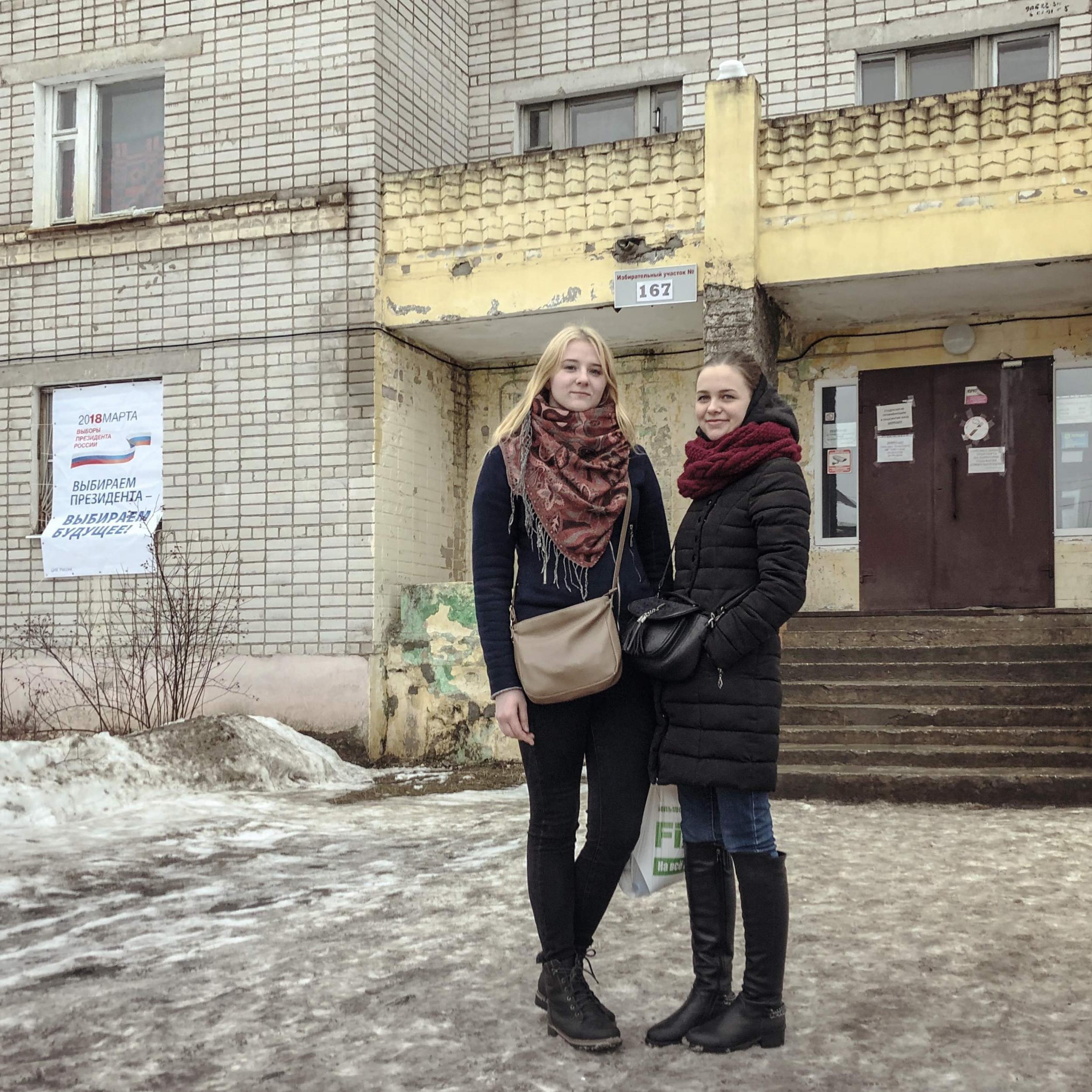
The faded trader town of Vyshny Volochyok is the next stop. In centuries gone by, the town was connected to St Petersburg via a waterway that transported cargo destined for Moscow. The influence of both capitals remains strong here, with a lavish architecture unusual for a town of its size.
We speak to two students of the local nursing institute, Olga and Snezhana, 19. Both have come to the town from a village in Tver region. They aren’t keen to tell us their surnames, they say, for fear of reprisals after speaking to a foreign journalist: “We’re not enemies of the nation, you understand, we don’t want people to be searching for us.”
They had little to complain about, they said, repeating a phrase we had heard dozens of times on the road already. Yes, the student stipend of 452 roubles wasn’t fun to live on – but you can have a glass of wine every couple of weeks. Yes, the pull of nurses’ wages of 12,000 roubles (£150) a month was nothing to get excited about – but this was just a stepping stone to another career. Yes, it gets cold in the halls of residence – but you can always find a carpet to hang over the leaky windows, as pretty much all the students have done.
On Sunday, the girls will be voting in a presidential election for the first time. At 19 years of age, they have only known one leader: Vladimir Vladimirovich. By and large, they are happy for it to stay that way. They have little faith in the power of politics to change their lives. Neither Navalny nor Sobchak were interesting, said Olga – “though a lot of the other students seemed to like Navalny”.
“You’re asking what I think?” says Snezhana. “Well, I personally don’t think anything, I’m happy to remove myself from the process. I’m much more interested in boys.”
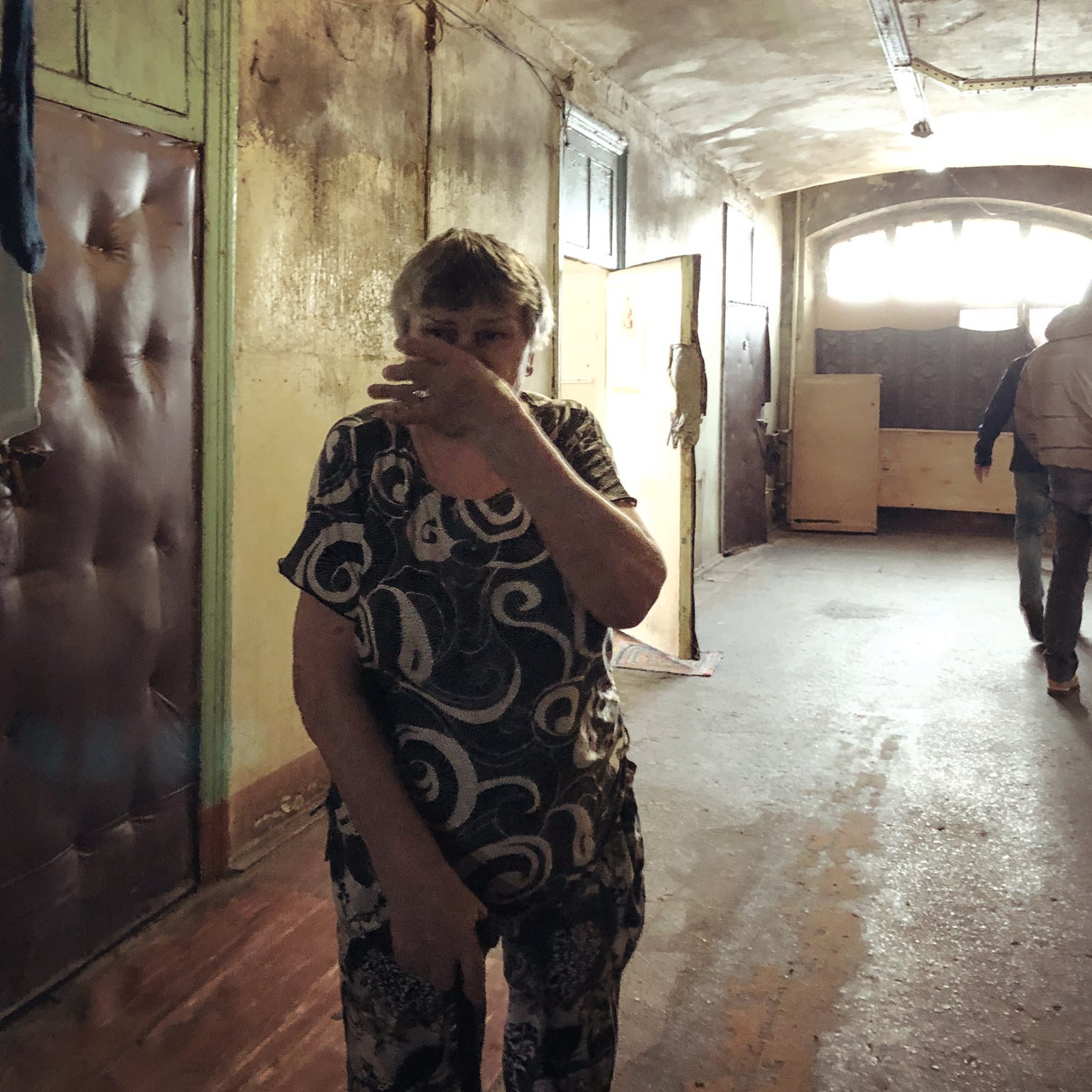
“They call me Moses,” says Vladimir Mogilnikov. “For 40 years I’ve been shouting in the desert, and nobody has heard me.”
The locals in Tver have directed us here, to Morozov’s Proletarian Courtyard, a group of red-bricked buildings on the outskirts of the city “to get a taste of local life”. Built in 1885 for the workers of the Morozov textile works, which once employed thousands, the buildings have long fallen into disarray.
The third floor has already been declared unfit for living, but if truth be told, such a description could be extended to the entire building. A chemical stench radiates from the entryway – the result of the sewage system falling into the basement in the early 1990s. Nothing can get rid of the smell. Black mould covers the walls of every floor. Occasionally a rat scuttles by.
The building has become a cause celebre among opposition groups, and has even featured in Russia’s limp election campaign. Presidential candidates Grudinin and Sobchak dropped by for photo-ops. But still there is no sign of action from the local authorities. The residents remain, some with scarves held over their noses, waiting to be rehoused as promised.
“We’ve done everything we can, written to every higher instance, but no one is interested,” says Mogilnikov, who is the leader of the residents’ informal association. “Our ultimatums have gone the same way as the British one will do: nowhere.”
Moscow is now just 100 miles away, but it might as well be another continent. There, hundreds of structurally-sound Soviet-era buildings are set to be demolished in a multibillion pound redevelopment of the city. Here, in a microcosm of life for the Russian dispossessed, multiple generations of residents wash in communal bathrooms, shower in communal showers, and try to avoid the communal waste while crouching on the communal toilets.
“I know its the capital, but we are people too,” says Mognilnikov.
The eldest resident, Maria Panasova, 82, is one of two left on the condemned third floor. An order to rehouse Grandma Masha came nearly five years ago, but hasn’t yet been acted upon. She limps with her walking stick to greet us.
“I’m exhausted,” she says, sobbing. “I’ve worked all my life, two heart attacks, buried two sons. And I live in a swamp. Please help me! I get on my knees and implore you!”
And she attempts to do just this, only to be restrained.
Grandma Masha is certainly not what you would describe as a typical opposition voter, and has voted for Putin consistently since 2000. But not, apparently, this time.
“What kind of a government is this?” she asks. “Putin would do well to come here and see how the ordinary people live.”
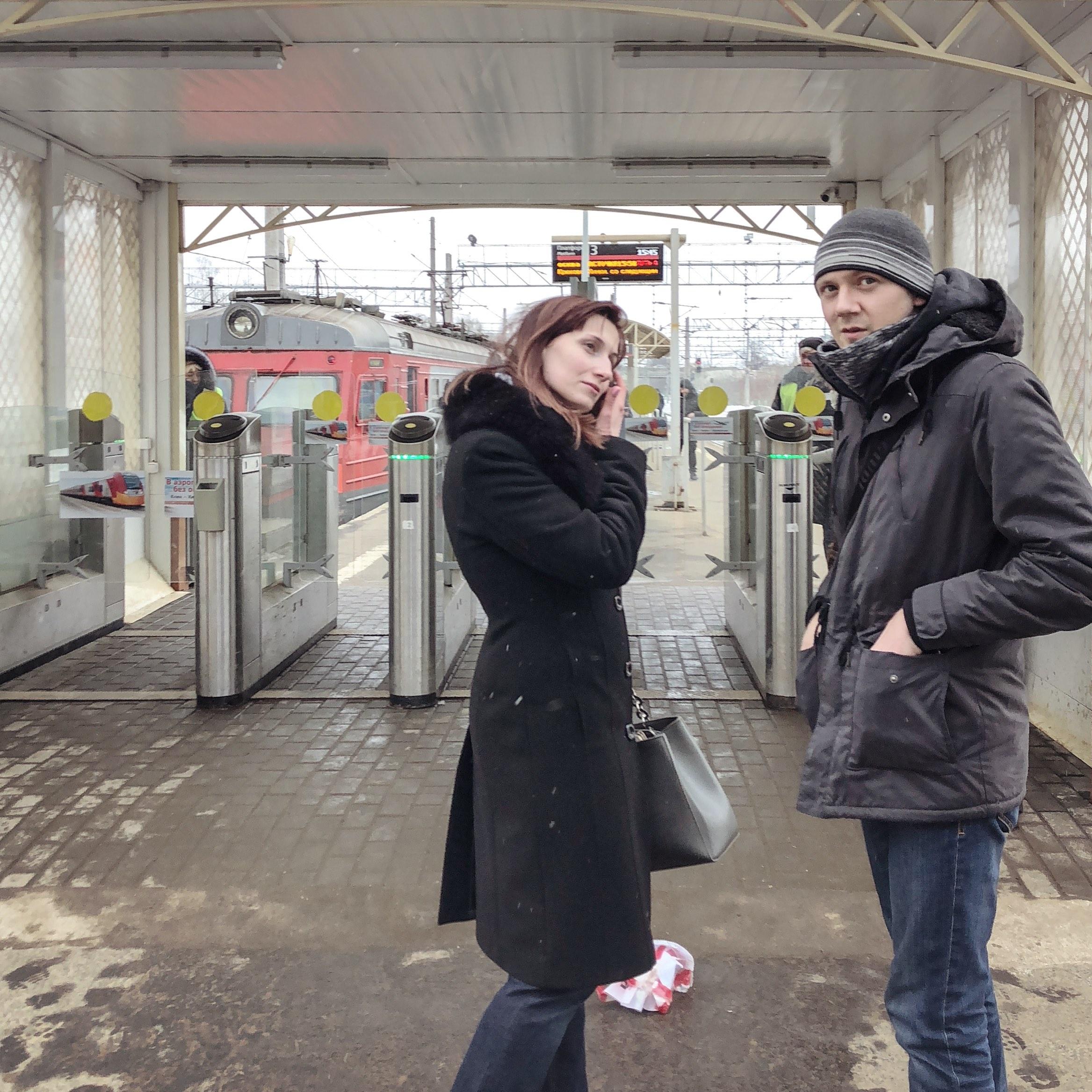
On the way back to Moscow on a modern suburban train, as I watch the stony faces of commuters, I try to take stock of the two days that have just passed. How to reconcile the side of Russia we have seen – and that Radishchev saw before us – with what the rest of the world is seeing right now: the resurgent Russian bear, flexing its muscles on the international stage.
It almost didn’t seem relevant to the journey I had undertaken. Few of the people I spoke to were ready to think beyond the anarchy of their domestic lives. Fewer still had travelled abroad or were prepared to think about Russia’s role in it. Those that did were unanimous in praising Putin’s new assertiveness abroad.
But the language they used was strikingly similar: we’re living sh*tty lives, yes, but the President is standing up for our country.
When you dug down, it seemed to be only the most superficial layer of their psychology. Almost immediately, people would add that they wanted to get on with other nations – to get on with Ukrainians, or the British for that matter. It was only the Americans, or something else, that was standing in their way.
At times, it was difficult not to conclude that Russia’s precisely engineered propaganda had left its calling card.
Weakness and strength aren’t incompatible. In Russia, the two are feeding off each other. While its citizens continue to teeter on the edge of survival – and while its leaders continue to exercise the greatest of control over them – the prospects for the world coming together are not promising.
Photos from the journey were provided by Dmitry Markov, an award-winning iPhone photographer who has amassed more than 200,000 Instagram followers with his insights into the gritty underbelly of Russian society

Join our commenting forum
Join thought-provoking conversations, follow other Independent readers and see their replies
Comments